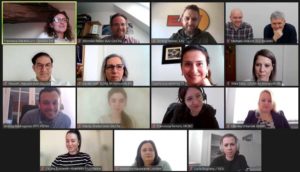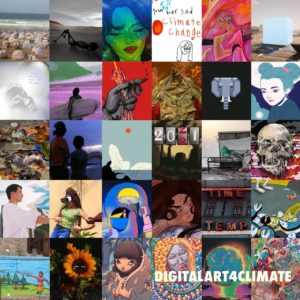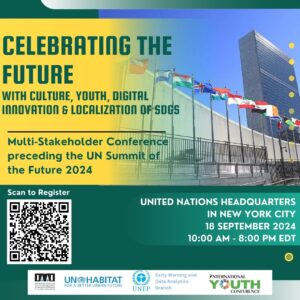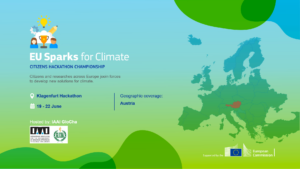IAAI Workshop “Rio+20 – A Window of Opportunity for a Multi-Stakeholder Partnership on Global Commons Growth” at 64th UN DPI NGO conference “Sustainable Societies; Responsive Citizens” Bonn/Germany, 5 September, 2011
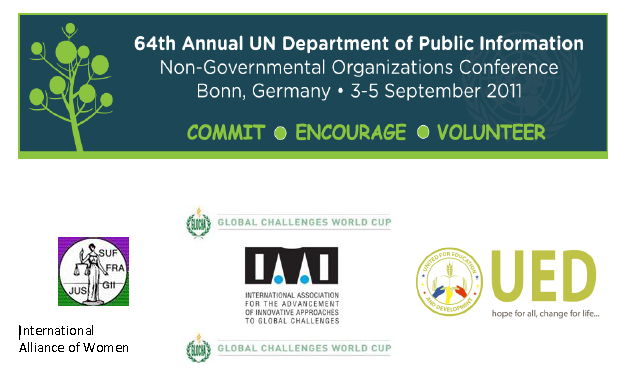

IAAI Workshop
Rio+20
A Window of Opportunity for a Multi-Stakeholder Partnership on Global Commons Growth”
@
UN DPI NGO Conference “Sustainable Societies – Responsive Citizens”
Bonn/Germany, 5. September 2011
Sponsored by
- International Association for the Advancement of Innovative Approaches to Global Challenges – IAAI
Cosponsored by
- Vienna NGO Committee on the Family
- International Alliance of Women, Equal Rights-Equal Responsibilities
General objective of the workshop:
This workshop will – with a view on Rio+20 objective of improvements in the field of institutional framework for sustainable development – present an integrative conceptual framework for coherent engagement of different sustainable development actors which looks at the different contributions as ‘collaborative wealth generation’. As this collaboratively generated wealth is of interest/benefit for all humanity (wo&menkind), it can be regarded as ‘global commons’ (‘The Commons is a general term for shared resources in which each stakeholder has an equal interest’, source:http://p2pfoundation.net/Commons ).
At the workshop the idea of a ‘Multi-Stakeholder Partnership on Global Commons Growth’ and a ‘Charter on Shared Social Responsibility for Global Commons’ will be presented and contributions of different stakeholders to global commons growth discussed.
In the context of Rio+20 conference a ‘Multi-Stakeholder Partnership on Global Commons Growth’ and a ‘Charter on Shared Social Responsibility for Global Commons’ are regarded by the workshop organizers as being instrumental for the integration of global public good oriented efforts of public authorities (local, regional, national and international), business sector (e.g. CSR activities), research and education institutions, civsvi, civil society organizations etc. and contributions of individual global citizens in one common documentation and metrics system. This shall help the promotion of different types of civic engagement (financial contributions, volunteering, activism, capacity building, creative commons/arts, social innovations, …) in line with the Bonn DPI Ngo conference title “Sustainable societies – responsive citizens”.
Moderator: Miroslav Polzer, International Association for the Advancement of Innovative Approaches to Global Challenges Vienna – Ljubljana
Speakers:
- Peter Crowley, International Council on Alcohol and Addictions
- Rosa Anna Weiss, International Alliance of Women, Equal Rights-Equal Responsibilities
- Billy Batware, United for Education and Development
- Aniko Szalai, University of Szeged & Academic Council on the United Nations System
- Faisal Yousaf, UN Volunteers
- Anam Gill, Forgotten diaries & Interactive Resource Center, Lahore/Pakistan
- Jean Paul Brice Affana, Youth Focal Point of UNFCCC secretariat & Rio 2012 YSWC
NGO Workshop 9 Session Main Recommendations – NGO Workshop “Rio+20 -A Window of Opportunity for a Multi-Stakeholder Partnership on Global Commons Growth”@ UN DPI NGO Conference” Bonn/Germany, 5. September 2011:
- Global citizens do not only have rights but also responsibility to work towards sustainable global commons (all the resources that present and future generations need for sustainable development) .Therefore the speakers came up with the following recommendations:
- Volunteering and civic engagement are key to build global commons and they should inform discussions on the global sustainable development agenda including Rio +20, the MDG’s and beyond. Volunteerism and civic engagement should take centre stage inspiring the global development dialogue.
- Sustainable efforts of different stakeholders should be combined in a shared vision of a multi stakeholder partnership for global commons growth and the different contributions to global commons growth like e.g: education in families (micro-educational level), schools, higher education and informal learning, youth activism, arts, media and individuals and innovative ways of self-organisation and collective action should be all documented and promoted by appropriate global information systems.
- Sustainability, good governance and responsible citizenship are not possible without focusing on gender equity and women’s empowerment.
- Students and other young people should be actively involved in promoting responsive and responsible citizenship.
- People with different backgrounds and educational levels should all participate more in the thinking about global issues and take more interest in these issues as well as in volunteerism and civic participation.
- Music, being a powerful peace tool, should be used to connect global communities on one platform, to voice and participate in issues of global concern and solutions to global challenges.
{gallery}events/bonn2011/photosbonn2011{/gallery}
